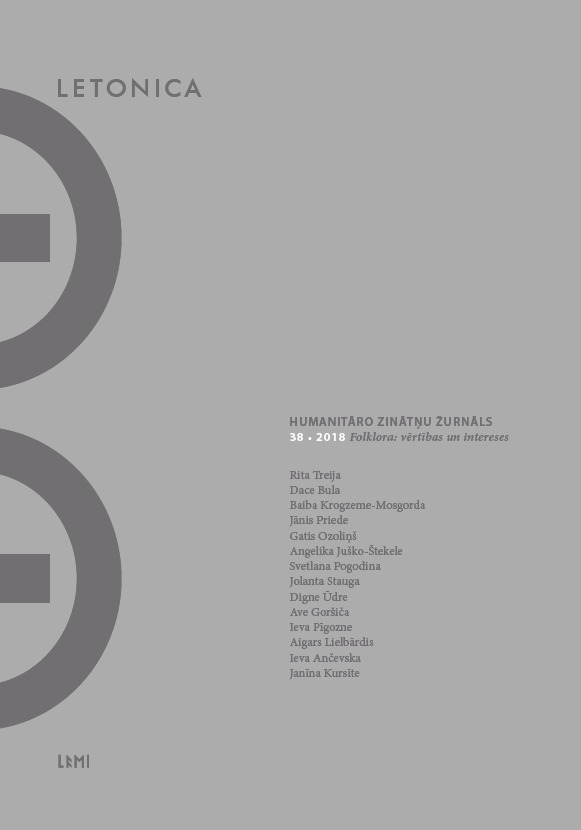Pirmā pasaules kara folklora: lietojuma vērtība
The Folklore of World War I: the Value of Use
Author(s): Gatis OzoliņšSubject(s): Customs / Folklore, Oral history, Social history, Pre-WW I & WW I (1900 -1919)
Published by: Latvijas Universitātes Literatūras, folkloras un mākslas institūts
Keywords: World War I; folklore; tales; popular song; Postcolonialism; contextual approach; collections of the Archives of Latvian folklore
Summary/Abstract: The goal of this article is to initiate broader studies on the content of folklore collections available at the Archives of Latvian Folklore (hereinafter – the ALF). The author will focus on those folklore texts, which are related to World War I and provide historical and cultural data, as well as evidence about the use of folklore texts and specific texts related to World War I. If the research area is extended, there are several directions for the potential research: 1) memories of war participants; 2) memories of their descendants on what their relatives, neighbours or friends have told and the preserved keepsakes (photographs, awards, letters, etc.); 3) the texts written by the folklore collectors (often accidentally, without any context) related to World War I; 4) tales, legends, and other folklore materials about the warfare locations in the nearest vicinity; 5) stories about events that took place at World War I, as well as the celebrations of festivities (for example, the Midsummer celebrations, masquerades) and wartime traditions (for example, joint readings of letters received from the battlefield and sharing of emotions, collective singing as a form of mourning and remembrance); 6) gossip, propaganda, jokes, etc. spread in wartime; 7) Participant of World War I – later, the folklore collector, folk musician, cultural worker. In this context, it is important to ask a crucial research question – is it possible to find folklore material in the collections of the ALF, which could give us some historical or cultural data? The author has examined several collections of the ALF (41, 1800, 1880, 1955). The entities related to World War I have been analysed emphasising the biographical and cultural contexts. The 1955th collection has been examined in detail, especially the folklore units, which tell about the events in Courland occupied by Germans (1915–1919). The studied texts of the ALF collections and the data provided by the narrators provide rather wide opportunities for further research of the tradition. Although, all together the texts and contexts that could be related to World War I are just a few, the excerpted material provides valuable information on historical and cultural events, narrators and social processes, as well as the use and value of texts.
Journal: Letonica
- Issue Year: 2018
- Issue No: 38
- Page Range: 77-91
- Page Count: 15
- Language: Latvian

